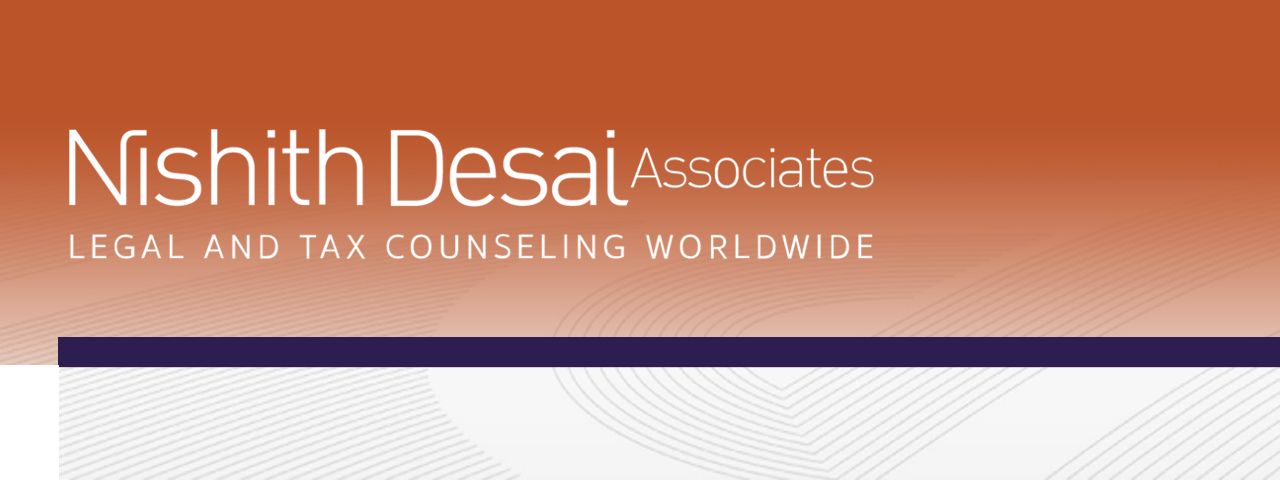|
|
|


A quick look in the rear-view mirror is all it needs to show just how much India Inc. has evolved! From the India Inc. of the Satyam scam, where members of the Board of Directors had no idea about how the books were being cooked, the Board of Directors of India Inc. today is learning how to play an active and vibrant role in guiding their respective ships. They are embracing their roles and are not afraid to flex their muscles in the time of crisis, to ensure that the moral compass that guides them and their ships is not affected. To that end, preparation towards crisis management is critical.
Crises are inevitable! Is your board prepared?
“In a crisis, when the stakes are high and scrutiny is intense, the board has a unique role. Stepping in may be uncomfortable, but stepping aside is not an option.”1
Crisis does not announce its arrival; it will, most certainly, come as a surprise. Consequently, it comes as no surprise that the first step for any board is to ensure that they have spent some time and effort and prepared enough for a crisis. The obvious issue that arises is that what is the board preparing for? The contours of a potential crisis are always unknown. When a crisis arises, irrespective of its source, boards will face deepened scrutiny and external pressure. They will be required to swiftly make judicious choices, implement resolute measures, and maintain consistent and transparent communication with the stakeholders and the executive leadership.
All crises are unique and inevitably raise complex and often unforeseen issues. Some crises can be foreseen, others not. Crises may not always stem from a single isolated incident; rather, foreseeable events can waterfall into unforeseeable consequences, ultimately triggering a crisis. Irrespective of the root cause, crises possess the potential to wreak substantial havoc in a very short span. When a combination of factors endangers core trust, reputation, or business continuity, the elements of a crisis emerge. Furthermore, one of the most detrimental aspects of a crisis is the failure of an effective response, as it can worsen the crisis itself.
Board’s role during crisis management?
Crisis management can be succinctly summarized as “anticipate, prepare, and deliver” This simple yet effective mantra encapsulates the essence of successful crisis management. By following this approach, organizations can enhance their ability to manage crises effectively, safeguard their reputation, and emerge from challenging situations with resilience.
Crisis management represents a unique and strategic discipline that empowers an organization to shift away from its “business as usual” mode, transitioning into a distinct framework of governance and operations. The essence of crisis management lies in its proactive nature; it commences long before a crisis materializes. It should be seamlessly integrated into the broader spectrum of the organization’s resilience measures, rather than being treated as a standalone, reactive solution.
A part of the board’s fiduciary duty and responsibility is to make sure that the company is well-run and the interest of all the stakeholders is safeguarded. Crisis management is a big part of this, as it helps the board check if the company can sustain the crisis and keep doing well in the future.
During times of crisis or uncertainty, directors have an integral role to play in ensuring that the organizations they lead effectively implement governance and risk models that can react to changing environments. Boards can and should help to build an organization better able to absorb the shocks from operational risks and balance sheet blows that arise from events like pandemics, natural disasters, regulatory change, cyber incidents, technology failures and changing community expectations.
But organizations with a focused governance model - particularly those that have effectively planned for crisis events - will be more likely to recover successfully, prosper across business cycles and build resilient growth. Boards have a key role to play in bridging the gap between their internal positions and external perceptions. Here are some key aspects of the board’s role in crisis management:
Crisis Management Team: Preparation is a wide canvas and the starting point is to ensure that the board should identify and put in place a crisis management team who are well versed with the company and its processes. It is this team who will play the critical role of leading the response into each crisis and ensuring that the board is kept fully apprised of developments. The composition of this team is important, and the board should ensure that the members, collectively, have the requisite understanding of the entire company. This team will need to work together and identify the specific work area as well as the manner of communication (to the board and/or the company), as and when the need arises.
Key advisors: As a part of their preparations, the crisis management team should know who the key advisors are and what skills they have. This way, they can quickly reach out to the right person or team when needed. It’s a good idea to have several options in case there are any conflicts or unavailability. As the nature of a potential crisis is uncertain, efforts should be made to understand and shortlist potential advisors across all skillsets. Keeping in mind the churn within the professional advisors, this list should be revisited and updated from time to time.
Setting the Tone at the Top: The board of directors is responsible for establishing the organization’s culture and values. The culture within an organization and its reputation with stakeholders can deeply influence not only the likelihood of identifying and managing risks before they develop into crises, but also the organization’s ability to withstand and survive a crisis when it hits. The board must lead by example, adhering to high ethical standards, and ensuring that these principles are embraced throughout the organization. Failure to pay attention to crisis management can result in catastrophic consequences.
Crisis Management Plan: Boards should ensure the company has a well-defined crisis management plan in place and setting the risk appetite within which the board expects management to operate. The best crisis management plans are living documents; they are regularly updated and enhanced. It’s up to the board to push management on whether the company’s crisis response plan is updated and ready to be launched. Regular drills and simulations can help ensure that the organization is prepared to respond effectively when a crisis strikes. Only by undertaking deliberate and targeted investigation and discussion around all risks and their likely occurrence and impacts can an organization, the board and management come to understand and manage crisis like situation. Further, when crisis or risk management activities becomes ‘part of the job’ rather than ‘tick the box’ exercise, there is often a shift or movement in attitude within the management team.
Communication and coordination: Planning ahead for how communications will be handled in the event of a crisis is critical. The board holds the responsibility of supervising corporate communications, which holds great significance for the company’s reputation and its ability to return to normal operations. It’s crucial for employees, customers, and suppliers to be informed about the situation and how it will impact them. The news media, the investment community, the public, and regulatory bodies all anticipate receiving timely and informative updates. The board must ensure that all crisis-related communication originates from a single point of contact and maintains a candid and consistent approach. As the crisis continues to unfold, directors should expect to get clear messaging on what is happening, who is accountable, how the company is responding, and what will be done next to address problems in the wake of the crisis.
Learn from experience: Once the crisis is over, the board or one of its committees should review the crisis, its effects and the company’s response in order to strengthen the organization and to be better prepared for future crises. It is also the time to learn from the crisis. The board needs to possess a robust and well-informed understanding of the financial, reputational, and legal risks associated with the company’s different lines of operations. The board should also establish an effective early warning system to ensure its functionality. Regular evaluation and re-evaluation of risks are equally essential.
Conclusion:
Handling a crisis primarily falls under the board’s responsibility, necessitating their guidance and involvement to make, execute, and communicate decisions even in the most challenging situations. No matter what crisis an organization faces, the board plays a vital role in helping it navigate through troubled times. While various people are involved in crisis management, the board’s actions can ultimately decide whether the company succeeds or fails. They should evaluate the organization’s risk identification and management practices to ensure their effectiveness. They also need to gauge whether the management is proactively working to preserve and improve the organization’s culture and reputation.
Further, an organization and its board must be able to demonstrate to all the stakeholders including the regulators that it has learned from its past mistakes, has diligently strived to establish an effective governance framework and is well-prepared to tackle a crisis. Lastly, the board should also be able to validate that they have made every effort to foster a culture of ethical conduct at the highest levels of leadership, provided its management with the necessary resources to understand and comply with the relevant rules and regulations, and is dedicated to take swift and firm action when issues arise.
1 Deloitte, Stepping in: The board’s role in crisis management dated September 19, 2019
Disclaimer
The contents of this hotline should not be construed as legal opinion. View detailed disclaimer.
Research Papers
Compendium of Research Papers
Clinical Trials and Biomedical Research in India
Cybersecurity Law and Policy |
NDA Hotline |
Video |



